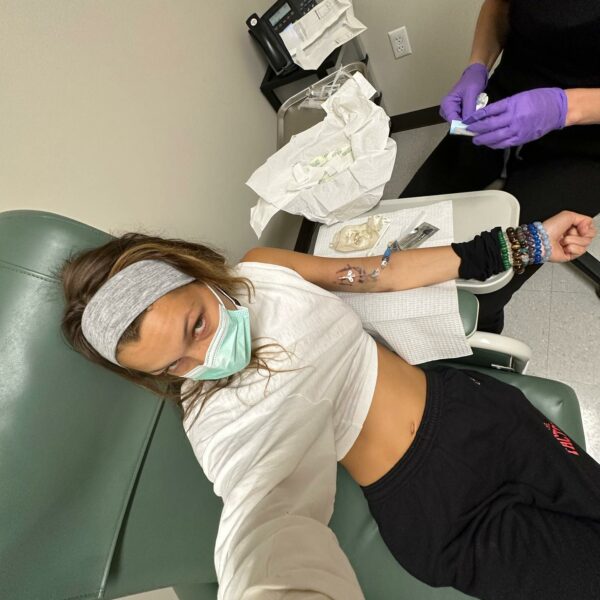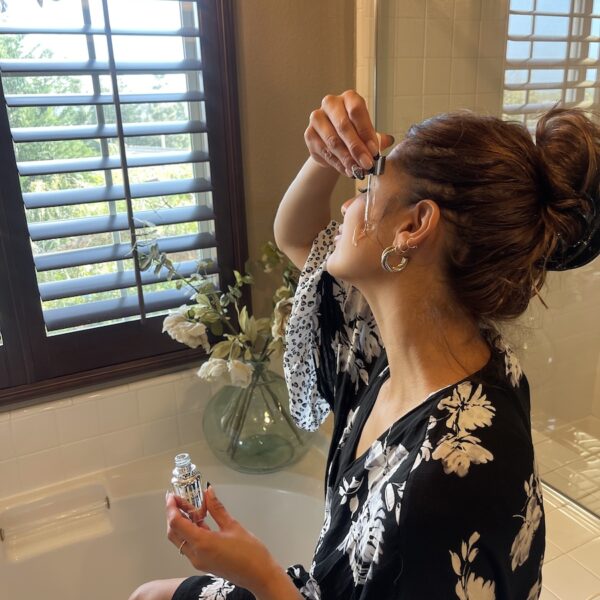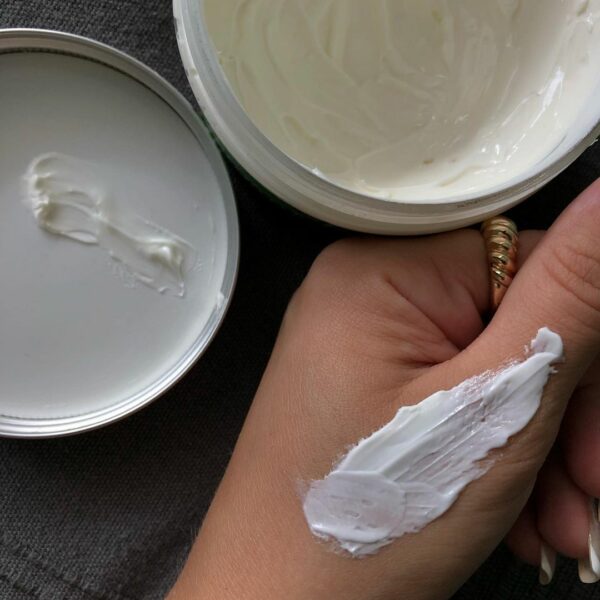Sugar is the enemy. There’s no way around it: sugar does terrible things to our bodies and our skin, and it’s hiding everywhere. Of course, there are natural sugars and sweeteners that have little to no visible or physical effects on our bodies, and we certainly aren’t outlawing fruit. However, sugars, especially your typical, commercialized processed sugars, are the main culprit of rapid aging in many of us.
There’s only one thing that ages us as rapidly as sugar, and that’s sun exposure. So, we can slather on all the SPF that we can muster, but if we’re shoveling sugar down our gullets for every meal, every snack, every day, we can count on some weird, premature aging signs to come on, rapid-fire. The reason sugar ages us so fast is actually quite a pertinent acronym: AGEs.
AGEs are Advanced Glycation End products, and they contribute to higher oxidative stress (think about all the antioxidants in your products … yeah, oxidative stress is a very bad, no good thing) and inflammation. They mostly form when fat or protein combine with sugar, i.e. basically any food with added sugars. What this means is that the sugar we consume attaches to proteins in our bodies and in our skin, breaking them down and creating free radicals. Sugar is the antithesis of antioxidants.
When free radicals release in our bodies and within our skin, something called cross-linking occurs. Cross-linking involves damaging the DNA associated with our collagen production. Those smile lines and smoker’s lines (regardless of whether or not we smoke) will surely reveal themselves much sooner if sugar is a staple in our diet. When cross-linking breaks down collagen, it stiffens our skin, causing wrinkles to become deeper and harder to soften. Think of a piece of cardstock, folded in half. Now unfold it, and notice the deep, irreparable crease left in it. Consider a piece of silk folded in half, then laid flat. That silky, fluid resilience is what we hope to preserve as long as possible when it comes to our skin and diet.
By now, we’ve associated inflammation with all things terrible. While our body relies on a certain amount of inflammation to protect and warn our systems of invadors and damage, too much inflammation is all too common, and can result in disease and other unsavory side effects. Redness, rashes, cystic breakouts, and overall puffiness and discoloration are a result of eating a diet too high in processed sugar.
When we eat a ton of sugar, it causes our insulin levels to spike. When insulin levels spike, we increase the production of oils in the skin. Sebum is important and even crucial for optimal skin barrier health, but too much of it causes clogged pores and follicles, creating acne, cystic breakouts, and deep, imbedded blackheads in our T-zone.
Before we enter a panic, swearing off all sugar and locking ourselves in a closet to avoid any sort of temptation, we do encourage everyone to relax and enjoy something “naughty” every once in a while. Have that little piece of cake, or that fun cocktail. However, we also encourage everyone to be hyper-vigilant of the foods we take home from the market. Sugar is hiding in flavored yogurts, pasta sauces, cereals, convenience foods, soft drinks, and so on. Be on the lookout for sucrose, high-fructose corn syrup, cane sugar, agave nectar, refiner’s syrup, brown rice syrup, barley malt, dextrin, dextrose, maltose, fructose, evaporated cane juice, and many, many more. Read labels before you buy, and don’t forget to live a little.
Poosh Edit: Popular Items

The content provided in this article is provided for information purposes only and is not a substitute for professional advice and consultation, including professional medical advice and consultation; it is provided with the understanding that Poosh, LLC (“Poosh”) is not engaged in the provision or rendering of medical advice or services. You understand and agree that Poosh shall not be liable for any claim, loss, or damage arising out of the use of, or reliance upon any content or information in the article.
Up next, be the first to know our weekly content and sign up for our Poosh newsletter.






































